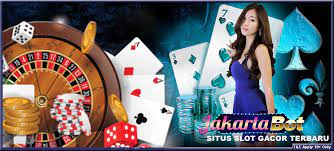The Joker card is a fascinating element in the world of playing cards, often regarded as the most enigmatic and versatile card in the deck. With its colorful designs, whimsical imagery, and unique role in various games, the Joker has transcended mere gameplay to become a symbol of mischief, unpredictability, and even chaos. In this article, we’ll delve into the history of the joker card balance, its various roles in card games, and its cultural significance.
A Brief History of the Joker Card
The Joker card originated in the United States in the mid-19th century during the development of the game Euchre, a popular trick-taking card game. The Joker was initially introduced as a trump card to enhance gameplay and was often referred to as the “best bower.” Its colorful designs, which often feature a jester or clown, quickly captured the imagination of card players.
As card games evolved, so did the role of the Joker. By the late 19th century, the Joker had become a standard feature in decks of cards, serving various purposes depending on the game being played. Today, it is a staple in many card games worldwide.
The Role of the Joker Card in Card Games
The Joker card is known for its flexibility and unique functions in various card games. Here are some of the most common roles it plays:
- Wild Card: In many games, the Joker acts as a wild card, allowing players to substitute it for any other card to complete a set or a sequence. This versatility can significantly enhance a player’s chances of winning.
- Trump Card: In some games, the Joker serves as a trump card, which means it beats all other cards. This adds an element of surprise and strategy, as players must decide when to use it for maximum effect.
- Game-Specific Functions: Different card games may assign unique roles to the Joker. For instance, in the game of Rummy, the Joker can be used to form sets or melds, while in games like Poker, its use is often limited or omitted altogether.
- Special Scoring: In certain games, the Joker may have specific point values, affecting the overall score of a hand. This feature can add a strategic layer to gameplay, as players must consider the potential impact of the Joker on their final scores.
The Joker in Popular Culture
Beyond its role in card games, the Joker card has become a significant cultural symbol. It embodies the concepts of unpredictability, chaos, and the subversion of norms. Here are a few ways the Joker has made an impact:
- Literature and Film: The Joker has appeared as a character in numerous films, comics, and novels. Most notably, the character The Joker from the Batman franchise epitomizes chaos and villainy. This character’s influence has made the Joker card a symbol of mischief and rebellion.
- Art and Design: The imagery associated with Joker cards often features vibrant colors, whimsical designs, and playful motifs. Artists and designers have used the Joker card as inspiration for various works, celebrating its playful nature and rich symbolism.
- Psychological Symbol: In psychology, the Joker can represent the unpredictable aspects of human nature. It signifies the duality of life—the balance between order and chaos, reason and madness.
- Gambling and Risk: In gambling culture, the Joker card embodies the idea of taking risks and embracing uncertainty. It serves as a reminder that fortune can shift unexpectedly, making every game an adventure.
Conclusion
The Joker card is more than just a piece of playing card history; it is a symbol rich in meaning and cultural significance. From its origins as a trump card in Euchre to its widespread use in modern games and popular culture, the Joker embodies unpredictability and fun. Whether you’re playing a casual game of Rummy or engaging with the character from the Batman universe, the Joker card invites players and enthusiasts to embrace the thrill of uncertainty and the joy of play. So next time you see a Joker card, take a moment to appreciate its multifaceted role in both games and culture!
